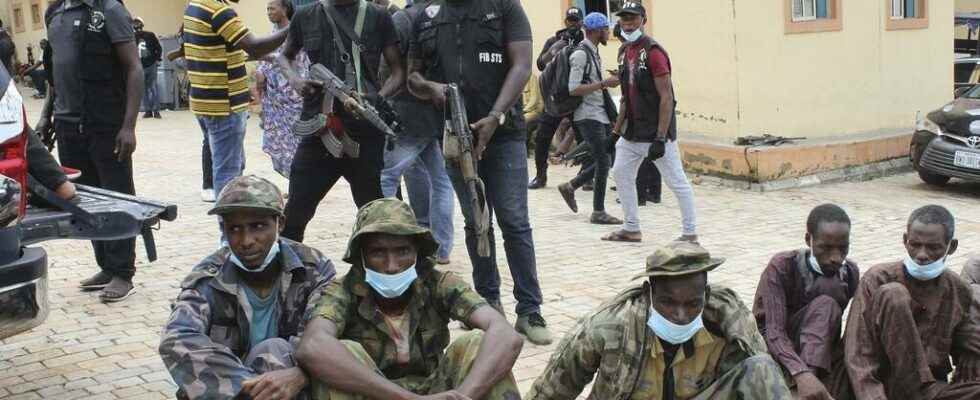Kidnapping has become an industry with a high economic cost to families, businesses and communities in the most affected parts of Nigeria. In a recent report, analyst firm SBM Intelligence attempted to quantify the cost of kidnappings to the Nigerian economy.
With our correspondent in Lagos, Liza Fabbian
The causes of insecurity and the nature of the conflicts may vary from region to region, but the use of kidnapping is a common denominator throughout Nigeria. Between July 2021 and June 2022, nearly 3,500 people were kidnapped across the country, according to a report by SBM Intelligence.
The data collected indicates that ransom demands have climbed to more than 9.6 million euros over the period, and it is confirmed that at least one million euros have been paid to the kidnappers. These figures do not include the sums exchanged for the release of passengers from the Kaduna-Abuja train, attacked in March. Nearly half of the 72 people kidnapped were released in July, against sums amounting to at least 200,000 euros per person, according to this study.
► Also to listen: Attacks and kidnappings in Nigeria: the disarray of the populations of the northwest [1/2]
Faced with the general impoverishment of the Nigerian population, the kidnappers sometimes ask for food, cell phones, weapons or other payment in kind. Their criminal activities limit trade and investment in the most affected areas.
Finally, the report by SBM Intelligence underlines that a new trend is emerging, with the multiplication of kidnappings of Catholic priests, probably with the hope that the Church will have “the financial capacity” to pay for their release.
► Also to listen: Attacks and kidnappings in Nigeria: the children of the Birnin Kebbi boarding school [2/2]
